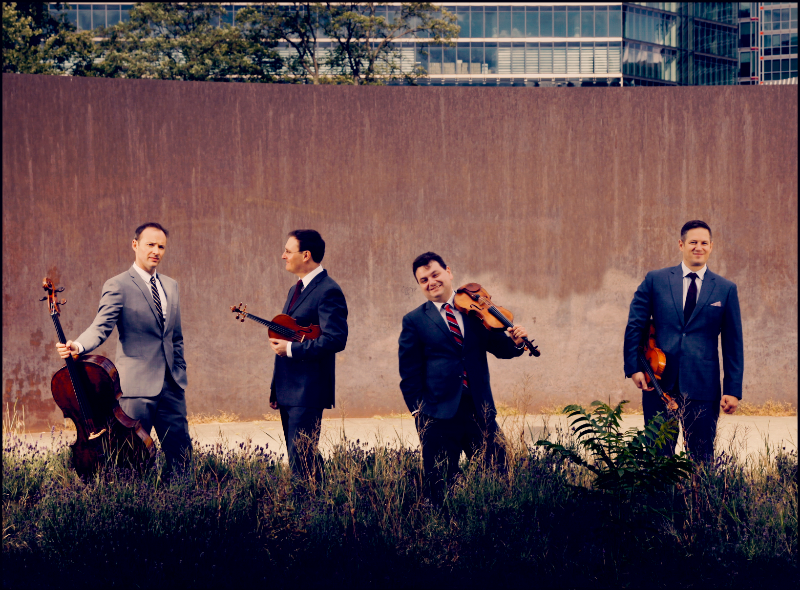by David Kulma

Mozart’s d-minor Quartet, K. 421, is the only minor-key quartet in his set of six dedicated to Haydn. The Jerusalem gave a polished, cohesive reading of this dramatic work, and the opening movement provided them ample opportunity to show off their full-bodied tone and tasteful interpretative skills. There was a certain amount of drama, but the overall effect never strayed from good taste. The calm second movement was perfection: they played with amazing precision and clear, large phrase-shapes where nothing was out of place. The impassioned scherzo was a delight, while the variation finale featured their excellent virtuosity, notably Kam’s robust viola tone.
Korngold’s Quartet No. 2 in E-flat major was written in 1933 in the prime of the composer’s career. Completed soon before he first visited Hollywood, where he would earn his lasting fame in the movie industry, this quartet is full of the phosphorescent late-Romantic writing that made his style widely copied in Los Angeles for decades. The Jerusalem dug deeply into this wonderful four-movement work. The colorful first movement is dripping with Korngold’s zestful melodies and constantly shifting moods. The Ländler-like second and walzing fourth were like dessert in the Quartet’s fingers, while the Larghetto’s moonglow chords and gorgeous melodies suggested that Korngold should be in regular circulation in the quartet repertoire.
On their last visit, the Jerusalem brought Shostakovich’s Third Quartet to the CCMS series. This time they jumped ahead to his imposing Ninth Quartet from 1964. In five movements connected through single-note bridges, Shostakovich again plumbs the depths of multivalency that make his music a cipher for the listener’s own imaginings.
Full of weird melodies and pounding rhythms juxtaposed with glassy stillness and major chords that refuse to sound happy, the work is a powerful narrative that is reluctant to give up its meaning. The opening movement wanders through its drama, while the first Adagio slowly gains in passion. The central Scherzo is frenetic and typically ironic Shostakovich, visiting disturbing contexts that make major triads into menacing grimaces. The Jerusalem built the second Adagio to an intense dissonance of interlocking fifths, and pounded the fast finale home with doom pizzicati and a profound cello solo from Zlotnikov. Based on this performance alone, the Jerusalem Quartet are welcome back anytime.
Published on ClevelandClassical.com November 13, 2019.
Click here for a printable copy of this article


